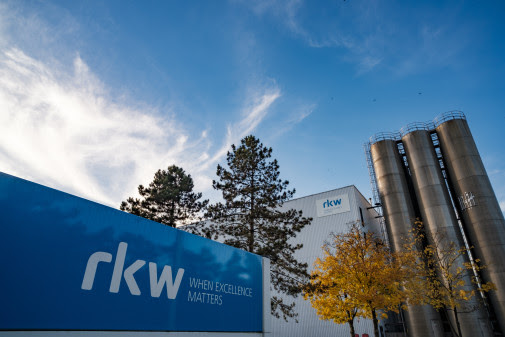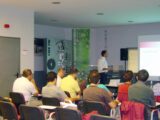
RKW reduces CO2 emissions by 80,000 tons
December 9, 2020The RKW Group has switched its production sites in Germany to green electricity this year, thereby significantly expanding its commitment to sustainability once again. The use of clean energy has reduced CO2 emissions by around 80,000 tons in 2020. In relation to the power consumption of the German sites, this represents a reduction of around 80 percent. Calculated for the Group as a whole, CO2 emissions are around 40 percent lower.
The production of films is an energy-intensive process, especially as the sites produce around the clock and throughout the year. The use of electricity from regenerative sources such as wind, solar and hydropower while simultaneously dispensing with fossil fuels like coal, oil and natural gas is therefore a fundamental decision of the company.
“Sustainability and environmental protection are firmly anchored in RKW’s strategy. The use of green electricity is a further step on our way to assume responsibility and make a contribution to climate protection,” says Harald Biederbick, CEO of RKW SE.
As a leading film manufacturer, the RKW Group has been working for years to improve its environmental performance. One example is the outer skin of a diaper, the so-called back sheet: by consistently reducing the thickness of the material, the CO2 footprint of these films is now around 40 percent lower than 25 years ago. In addition to the development of ever thinner, ever more elastic and therefore more efficient films, the RKW Group is continuously working on giving plastics an ecological perspective, thereby assuming responsibility for future generations.
Sustainability report based on UN goals
A key component of this year’s commitment to sustainability – in addition to the use of green electricity – was the RKW Summer Campaign with concrete measures and environmental protection projects at all locations worldwide. The Sustainability Report, which has also been reissued, follows the Sustainable Development Goals (SDGs) of the United Nations for the first time.
“We have taken a big step towards sustainability as a company in 2020 – but we are certainly not standing still,” Harald Biederbick continues. New, additional initiatives are planned for the coming year, especially for the further expansion of the circular economy. “Together with our customers and partners, we will work on sustainable solutions that make the lives of consumers around the world easier.”
